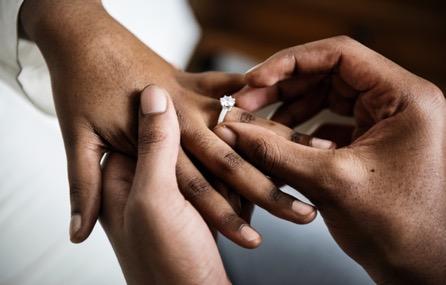
The Story of How Kenya Gained Independence: A Short History
The Story of How Kenya Gained Independence: A Short History
Kenya is a country that has been around for quite some time. It's true, Kenya was not always an independent country, but the story of how it gained its independence is more than worth telling. From colonial rule to post-colonial tensions and on to the present day, this blog will explore all phases in Kenya's history. The hope is that by reading about how it got here, Kenyans can learn more about their own history and also be empowered with knowledge of what they can do tomorrow to make sure they are on the right path towards continued prosperity!

Section 1: The Colonial Era
This timeline will feature Kenya's history, including the bloody life of the colonial government through to the era of independent Kenya. The detail of this part of the blog is not to be taken lightly, as all that happened and is happening in this era will be discussed in more detail.
1960-1961 – A war for independence broke out between Kenya and Tanzania.
1963 – Kenyan fighters and the government army went to war in Nyanza. In 1967, Kenya won independence.
1970 – The Mau Mau Rebellion began and continued until the government took control. The period during which this war was fought was, by many accounts, one of the darkest times in Kenyan history.
1976-1981 – A famine wiped out nearly half of Kenya's population.
The Post-Colonial Era
When Kenya became an independent nation on December 12, 1963, it was at a time when Africa was in the midst of a period of instability and instability only increased with the invasion of Idi Amin in 1971. Thankfully, since independence Kenya has not had any foreign military invasions. But, as seen in other places around the world, the culture of compromise, the power of regional leaders and the fear of violence following the removal of a strong leader often creates the very things we fear most.
The Kenyan people's ability to maintain peace under trying circumstances is a testament to their tolerance and a clear example for us all to learn from.
In addition to gaining independence in 1963, Kenya has witnessed several devastating civil wars and many other acts of violence.
Independence and the Creation of the Kenya African National Union (KANU)
Two groups came together to fight for the political independence of Kenya: The United African Company (UAC) and the Kenya African National Union (KANU). These two groups held vastly different ideals. The UAC was the creation of the British as a way to develop economic opportunities for Kenya after the country gained independence. The UAC funded the creation of the Kenya African Union, which represented the interests of African settlers (as opposed to the interests of the majority of Kenya's population). From the date of Kenyan independence in 1963, the UAC and KANU competed with each other for political power.
The 1994 General Election
The British colonial presence in Kenya ceased in 1963. This was the year that the colonial administration gave up control of its affairs in Kenya for good.
But the same constitution which granted freedom and rights to the indigenous people of Kenya would still be in place, having been tweaked in various ways, to benefit the ruling political class of the day. After a couple more years, though, the Kenyan political elite had other ideas about the state of their country. There were agitations for reform that were fuelled by a devastating drought and rising living costs.
In August 1993, the Kenyan Parliament passed a new constitution.
A New Constitution in 2010
The 2010 constitution was a landmark for Kenyans as the first in the country's history to be drafted by the people and approved by the people. It united the nation in a way that had never been possible before and has laid a solid foundation for future elections. It went some way towards removing tribal sentiments and preferences from electoral outcomes but the electoral commission still did not have the resources to run free, fair and credible elections. One wonders if a new constitution could help solve that. Another question that we must still ask ourselves is what can be done to improve the functioning of our government departments.
Of course, it is a bit hard to give a complete history of Kenya's constitution without talking about colonialism and its lasting effects on the country.
Kibaki's Second Term in 2008
While Kenya has a long history of independence, this isn't the first time that the country has elected a president to the highest office in the land. In 1963, Kenya was able to complete the journey from being a colony to an independent nation. Now a country of 53 million people, Kenya was just too large for one president to take care of. They needed to find a way to divide up the country into smaller territories that were sufficient enough to prevent any unmitigated power grabs.
One part of the constitution stated that any new constitution would have to come from a national referendum, but the election of 1963 was a one man race. So the other constitutional writers met secretly to draft a proposal that was voted on in 1961 and then again in 1964 to be ratified.
The 2007 Electoral Crisis
When I first joined BBN, I was working as a lecturer at Makerere University and teaching undergraduate students about Kenya's history. Part of what I did was educate them about the importance of history, and, perhaps more importantly, to instill in them a sense of nationalism. This blog post in particular, as I re-read it, is still one of my favourites because it reminded me of that feeling.
Our kenyan independence from Britain was negotiated by Kenya and British officials in a period that spanned a few months between December 1964 and January 1965. This event heralded in a new government and is often referred to as 'the 1963 revolution'. Our first head of state was Jomo Kenyatta, while the role of Prime Minister was held by Wilson K'ogelo Jnr.
Kenya's Current Political Situation
For starters, why do I believe that learning about the history of the country is important? Well, there's a few reasons. Primarily, one of the best ways to remain informed about the happenings around the globe is to understand why things are happening. Understanding Kenya's history in this way provides a better understanding of who they are as a country. This history is filled with significant events that have shaped Kenya and brought it to where it is today.
Also, this knowledge will help Kenyans understand what is happening right now and what they should be doing about it. When history repeats itself, it's a good idea to look at the past to understand how things get done in the present.
What Kenyans Can Do to Protect Their Democracy?
Kenya has long been known for its political turmoil and its lack of democratic progress. It was under the oppressive leadership of the British Colonial government that Kenya first gained independence from British rule in 1963. Since then, it has only continued to see its problems unfold. As a result, Kenya has grown into one of the largest democracies in Africa and the third largest country in East Africa, behind only Uganda and Tanzania. It has a robust media and an active civil society. The question remains, however, what can Kenyans do to protect and strengthen their democratic system?
Unfortunately, Kenya has one of the most corrupt and inefficient governments in the world.
Conclusion
Independence is a day that we tend to celebrate. And it is one that we should. After all, our national anthem, 'Oh Canada', had to be changed from 'God keep our land', to 'Land of Hope and Glory', because it was just that – ours! We've always celebrated the big moments in our history. But we tend to forget the "little" things that led up to them. So what can you do on the anniversary of Kenya's Independence Day?
I certainly wasn't there when independence happened, but looking back now, I am proud to say that I was at the very start of this great nation's journey. If you want to be there, you can be! Grab a sheet of paper, a pen, and write your story down. So that you can look back at what you have written and see just how far you have come.














